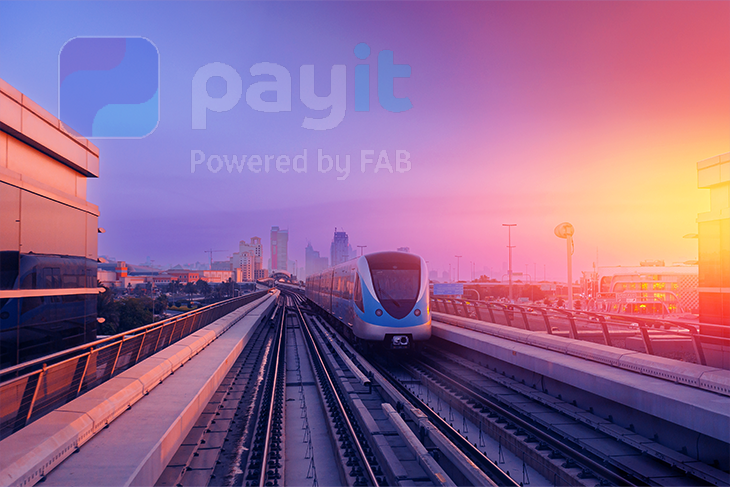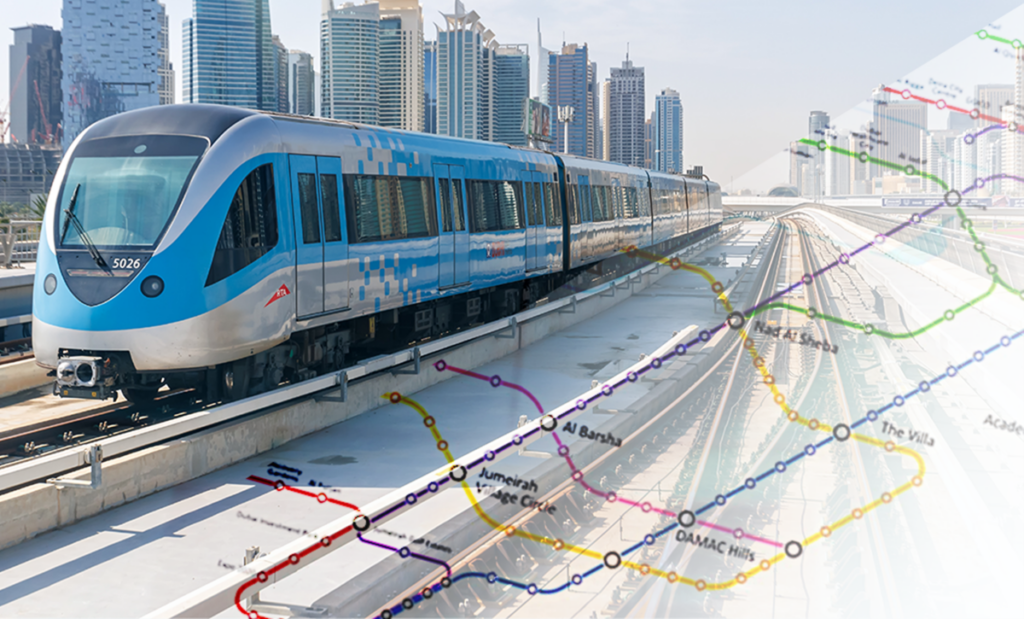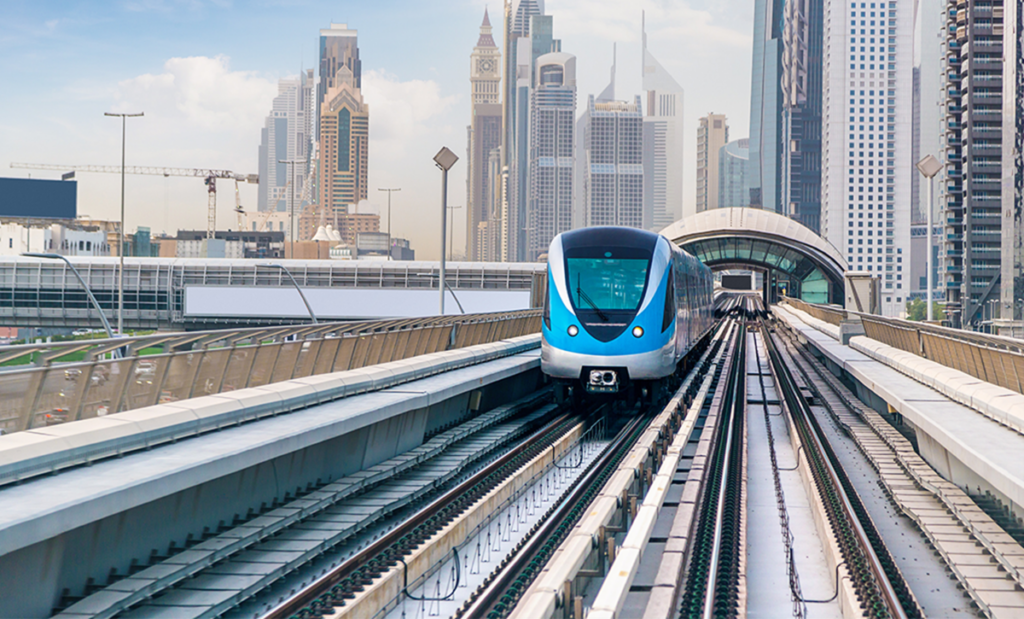Home » Cashless Payments Knowledge Hub » 10 Unknown Facts About Dubai Metro – Celebrating 15 Years

A popular quote by Robert Brady says “There can be no doubt that the transportation sector is the most critical sector of our economy.”
The same goes for Dubai. We are recalling this today as Dubai Metro celebrates 15 years of service. It has not only offered individuals a way to commute but has also changed the way people move around the city.
However, you might be surprised to learn that there’s more to the Dubai Metro. In this article, we will cover ten interesting facts about the Dubai Metro.
Here are 10 unknown facts about Dubai’s lifeline – Dubai Metro.

You might be surprised to learn that the Metro in Dubai holds the title for the world’s longest driverless Metro line. The Red Line stretches an impressive 52.1 kilometers (32.4 miles).
The entire Dubai Metro network spans an impressive 75 kilometers (47 miles), serving 49 stations across the city. This extensive coverage allows you to reach key areas quickly and conveniently, reducing traffic congestion and travel time.
The Metro in Dubai uses a Communication-Based Train Control (CBTC) system, which allows trains to operate without human drivers.
Dubai Metro has around 730,000 passengers as its average passengers on a day to day basis. The system has even accommodated up to 900,000 riders on special occasions like New Year’s Eve.
in 2022, it set a new high with 225.142 million riders. This number continued to grow and reached 260.034 million in 2023. Additionally, 37% of all commuters in Dubai have been known to use the Metro as of the first half of 2024.
Do you know that Dubai Metro also offers Gold Class cabins? These exclusive compartments offer a premium travel experience for those seeking extra comfort. Gold Class cabins have better seats such as wider, cushioned seats with additional legroom.
To access Gold Class, you will need a Gold Metro Card, priced at AED 25. Fares for Gold Class are typically double that of regular fares. The cabins are often located at the front or rear of the train, away from the busier areas.
Recharge your Nol cards with the Payit app anywhere and anytime.
Dubai Metro is integrated with other transport modes, which makes your travel experience smoother. The system connects with an extensive bus network, allowing you to reach areas not directly served by the Metro. With 79 bus routes operated by the RTA, you have many options to complete your journey.
You can combine your Metro journey with water taxis. These modern, air-conditioned vessels offer a unique way to explore Dubai’s waterways and significant landmarks.
The Roads and Transport Authority (RTA) has implemented various eco-friendly measures to reduce the system’s carbon footprint. The RTA has started installing solar energy panels at the Dubai Metro Depots in Jebel Ali and Al Qusais, as well as the Tram Depot in Al Safouh. This project is expected to produce 9.959 megawatts of solar power.
To improve sustainability, the Dubai Metro has launched a pilot phase to treat and recycle 50% to 80% of waste from Metro and tram stations. This initiative supports Dubai’s efforts to achieve zero waste by 2030.
Dubai Metro also offers dedicated cabins for women and families. These compartments, easily identifiable by their pink color, offer a comfortable and secure travel option for female passengers and children.
They serve as a crucial element in promoting women’s participation in public life, particularly in a society where gender mixing may be discouraged.

Some Dubai Metro stations have been transformed into unique cultural spaces, blending art and history with the daily commute via the Dubai Metro Museum initiative. Each station has its own theme, reflected in both interior and exterior designs.
For instance, one station focuses on Islamic arts and Arabic calligraphy, displaying manuscripts, ceramics, and calligraphy paintings. Another highlight is human inventions in fields like engineering and medicine. These museum stations have a great educational impact on commuters, especially tourists.
Dubai Metro has Emergency Call Boxes (ECB) installed on each train, allowing passengers to report emergencies quickly. Advanced safety features in Metros include first aid rooms at stations and close coordination with ambulance services.
The Metro has implemented disaster management protocols, with staff trained to handle various emergency situations. In case of an incident, the typical response time is approximately 10 minutes.
Do you know Keolis MHI, the company operating and maintaining the Dubai Metro, has succeeded in hiring 212 UAE nationals, achieving a 12% Emiratisation rate? This exceeds the target set by the UAE government for private-sector employers.
The Metro in Dubai embraces diversity, with an even split of 50% men to 50% women among Emirati employees.
The Metro in Dubai has secured several impressive Guinness World Records. For instance, it holds the title of the longest driverless Metro network.
The Metro has also set records for diverse human participation, with people from 96 countries forming the longest diverse human chain in a train. These achievements have significantly improved Dubai’s global image globally.
The Metro in Dubai has grown into a very important part of the city in the last 15 years.
Dubai Metro plans to expand and increase its focus on sustainability and efficiency. You can use it not only for commuting but also to experience the culture of Dubai.
Meta title: Dubai Metro 15th Anniversary: 10 Facts you didn’t know about
Meta desc: Discover the hidden gems of Dubai Metro as it celebrates 15 years! Explore 10 fascinating facts about the world’s longest driverless metro system today.
Image title and meta should include ” Dubai metro celebrates 15 years of” and “facts about Dubai metro”